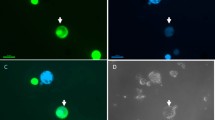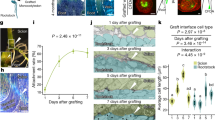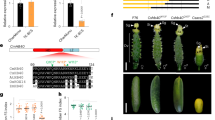Abstract
HYBRID seed of monoecious cucurbits is costly because roguing staminate flowers from seed-parent lines and transferring pollen from male to female parents by hand is costly. The introduction of a new growth-regulating compound, ethrel (2-chloroethanephosphonic acid) (Am-chem Products, Inc., Ambler, Pennsylvania), offers promise in significantly reducing the labour necessary for production of hybrid cucurbit seed.
This is a preview of subscription content, access via your institution
Access options
Subscribe to this journal
Receive 51 print issues and online access
$199.00 per year
only $3.90 per issue
Buy this article
- Purchase on Springer Link
- Instant access to full article PDF
Prices may be subject to local taxes which are calculated during checkout
Similar content being viewed by others
References
McMurray, A. L., and Miller, C. H., Science, 162, 1397 (1968).
McMurray, A. L., thesis, North Carolina State Univ. (1969).
Cook, A. R., and Randall, D. I., Nature, 218, 974 (1968).
Author information
Authors and Affiliations
Rights and permissions
About this article
Cite this article
LOWER, R., MILLER, C. Ethrel (2-Chloroethanephosphonic Acid) a Tool for Plant Hybridizers. Nature 222, 1072–1073 (1969). https://doi.org/10.1038/2221072a0
Received:
Revised:
Issue Date:
DOI: https://doi.org/10.1038/2221072a0
Comments
By submitting a comment you agree to abide by our Terms and Community Guidelines. If you find something abusive or that does not comply with our terms or guidelines please flag it as inappropriate.



